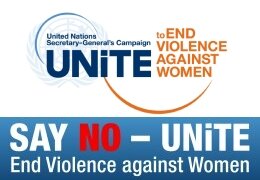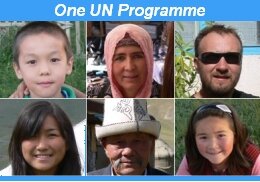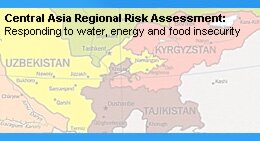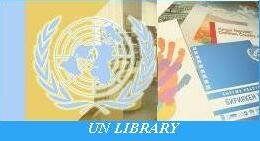| To save a genius: Doctor Takhir Khojaev |
|
|
| Categories: (Other Documents | Document Database | UN Agencies | UNICEF) |
|
Abashed neonatologist Takhir Khojaev is sitting in UNICEF’s office, talking about a recent case of saving a newborn child in Suzak “We do this every day. And this is the first time in our lives we’ve been called heroes for our work.” With his knowledge in the field of intensive care of newborns Doctor Khojaev turned up just at the right time at a training event in the maternity wing of Suzak district hospital (in Osh Province). During one training session, part of a series which Dr Khojaev is carrying out around the country in the framework of UNICEF’s “Reforming and regionalizing of perinatal and neonatal care in Kyrgyzstan”, a woman was admitted to the department diagnosed with a detached placenta.She needed an urgent operation, but when she underwent a Caesarian section, it was ascertained that out of the eight signs of life which should be observed in infants in the first minutes of life, this newly arrived baby had only one – auscultation for tachycardia. But the baby and his mother were lucky: one of the best children’s doctors in the country was in the department at that time. Neonatologist Dr Khojaev was armed with an Ambu bag and, more importantly, with knowledge and experience of resuscitation of infants. He was also surrounded by trained staff members of Suzak’s maternity department. “Of course, a baby should be placed on its mother’s stomach, but she was so exhausted that we decided to put it on its grandmother’s stomach, so that the child could feel the touch of a relative’s skin, and so the grandmother could feel what a miracle had occurred. It helps to strengthen the family,” says the doctor. “From the moment when a baby with low survival chances is born, neonatologists and resuscitation experts have only two or three minutes to resolve the basic question – whether the child will live or not,” says Doctor Khojaev. “And if they are not aware of techniques or lack knowledge of newborn reanimation, and if they also do not have the necessary equipment, in particular Ambu bags, the chances of the child’s survival are sharply reduced.” Takhir Khojaev has been a neonatologist at Osh Perinatal Centre since his student days: that is, he has been practicing neonatology for more than 20 years. However, he says that the knowledge he acquired in 2000 during UNICEF-supported training carried out by Arnaus Lubshis, a leading neonatalogist from Lithuania, turned his understanding of how modern resuscitation of newborns should be carried out on its head. “In rescuing a newly born child, even the simplest things can be crucial,” says Takhir. ‘Firstly, it is very important that the woman was closely observed during pregnancy. Then, it is important, that the woman gave birth comfortably, and she could have done it in any position - sitting, standing, or lying down. It is very important that the baby is kept warm right from birth. Imagine being thrown out in a winter frost without clothes, and you will get some idea what it is like for a child to be born in a cold maternity hall. And it is also important that at the moment of childbirth a team of well trained experts are at hand.” Meanwhile, the system of training of medical personnel, particularly in the field of neonatology, lags far behind the needs of the country and modern requirements. In addition, there is a lack of interest in entering neonatology, because it is not prestigious and poorly paid. “People say that good doctors treat adults, weaker doctors treat children and the least professional treat babies,” says Takhir, “though this is completely wrong as actually all age groups demand high levels of professionalism and complete delivery.” Despite the fact that indicators of infant mortality have fallen in recent years in Kyrgyzstan from 66.0 to 38.0 for every thousand live births, and under-5 mortality from 72.3 to 44.0, the figures do not give the full picture because some deaths are not registered, are concealed or are incorrectly classified. According to World Bank figures for 1992, 1995 and 2001, and the DHS demographic survey of 1997, the real level of infant mortality is regularly 30-35 points higher than official national indicators. “At the beginning of the decade, when I tried to introduce modern techniques for saving newborns, I was declared by colleagues to be an enemy of the people, and I had to leave the post of department head. But now, as the number of my allies and supporters grows, professionals who have completed my training courses (and there are now more than 400 of them in the country), just in our Centre the number of newborns dieing in childbirth has fallen by more than half,” says Takhir. It is well known that infant mortality is considered one of the most sensitive indicators of the poverty level in any country and, in a wider sense, the level of socio-economic and human development. It is for this reason that in the framework of UNICEF’s programme, implemented with the financial support of the Netherlands’ UNICEF Committee, further training events have already been organised and planned for practicing neonatologists, obstetricians, gynecologists, nurses and other medical personnel on providing first aid and resuscitation for infants and increasing the quality of medical services. The programme also includes the development of standards, guidance and reports following WHO recommendations, as well as the universal introduction of electronic registration of newborns. As part of the programme, two Regional Centres for professional retraining (in Bishkek and Osh) have been equipped with Ambu bags, dummies and other equipment needed for practical training. The programme also includes a number of other components aimed at decreasing infant and child mortality. “When an adult or a child dies, it is always a drama in a family, but when an infant dies people often say it was predestined,” says Doctor Khojaev. “But I don’t agree with these attitudes and believe that we need to change society’s opinion about this phenomenon. I tell training participants and colleagues – what if a future genius is in your hands? Can you imagine what will happen to the country if we give this person a chance of life?”
Olga Grebennikova |





















